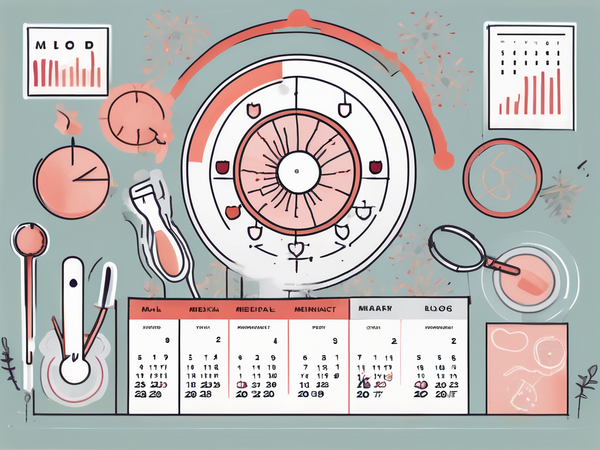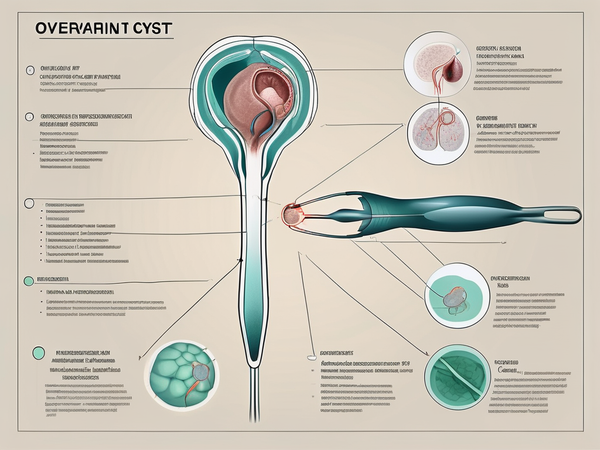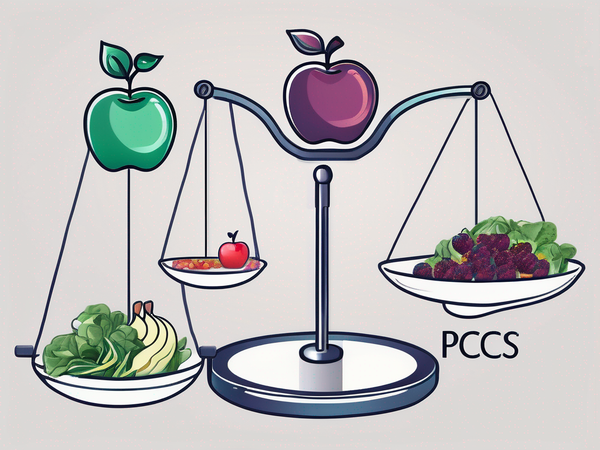Almost everyone is taking supplements these days to boost the immune system and improve digestion, skin, hair, and nail health, or overall health. People also opt for multivitamins when they can't get complete nutrients from their daily diet. It is essential to provide your body with all the necessary nutrients, as nutrient deficiencies can cause harmful diseases.
However, when it comes to selecting multivitamins, you probably would have been overwhelmed at least once. And it is because of the abundant options of multivitamin supplements in healthcare stores, pharmacies, and on the internet.
And if you're a woman, choosing the right multivitamins would become even harder. Because women's bodies have distinct needs based on different phases of their lives, and on the basis of those, they must choose the right multivitamin for themselves.
In this blog, we'll talk about multivitamins in detail and the factors to consider while choosing the right multivitamins for women.
What are Multivitamins?
Multivitamins are supplements that consist of several vitamins and minerals. These supplements are crafted to provide your body with the daily dose of vitamins and minerals to function in the best way.
Since research shows that most people can't get all the necessary micronutrients and macronutrients through their daily diet, they stick to multivitamins. But not every multivitamin is worth your money. That's why you must consider certain factors before investing in a multivitamin supplement. Let us talk about those factors below.
Which Factors Should You Consider Before Choosing Multivitamins for Women?

The nutritional labels generally have all the information you need to know, but we need to ensure we read it thoroughly before we go ahead to purchase it. Following are the factors one must keep in mind.
1. Consider Your Goals
The first step towards choosing the right multivitamin is knowing why you need it and if it caters to your nutritional requirements. Many people are not sure why they are taking the supplements and most have not actually looked at the ingredient list. Choose a vitamin that resolves your concerns like lethargy, fatigue, muscular cramps, sleep or maybe you suspect that your diet leaves some specific nutrient gaps. Also not to forget your age, if you are pregnant or not, trying to conceive, or in the menopausal phase, etc. Nutritional needs change with age and vary based on gender.
For example, women above the age of 50 may require more vitamins B6, D, and calcium. Pregnant women can opt for multivitamins rich in folic acid; Premenopausal women require more with Vitamin D and Calcium to prevent osteoporosis and iron compared to other demographics.
You also can contact your healthcare advisor for better guidance about the nutrients and vitamins you should pick according to your needs.
2. Dietary Preference
Individuals following a vegan or vegetarian lifestyle are often in a dilemma to find the best multivitamins free from any non-veg or dairy components. Nutrients like B-complex, Vitamin D, and Calcium are commonly found in non-veg and dairy based food hence Vegans/Vegetarians are at a higher risk of calcium, Vitamin B12, Vitamin B2 (Riboflavin), and Vitamin D deficiency.
Your eating patterns are very much responsible for identifying the nutrients you lack and may be required through extra sources. If you are someone who is often on a juice cleanse or restricted diets, there is a higher possibility that you are deficient in essential vitamins and minerals.
Look for multivitamins according to the diet you follow. Also, you can get a blood test that will help you know the nutrients your body lacks so that you can opt for the appropriate multivitamin for your body according to its needs.
3. Nutritional Needs
One of the most important things to consider before choosing a multivitamin is the Recommended Dietary Allowance (RDA) of the ingredients. This highlights how much of your daily nutrient requirement will be fullfilled by these supplements. Always check the label before buying. The label must show the appropriate RDA of the ingredients in the multivitamins. It is better if it is close to 100%.
We require a continuous daily supply of Vitamins like B-complex and Vitamin C in our diet. Because they are water soluble and are not stored in the body, they need to be replenished regularly through your diet. Any excess of water-soluble vitamins is quickly excreted in urine and won’t cause any toxicity.
However, in certain cases of nutrients, like calcium, potassium, and magnesium, it is not possible to put 100% of the requirements in a single dose as it can cause overdose. Also, consuming more than the daily intake can be harmful. Like in the case of Vitamin K, A, D, and E, fat soluble vitamins more than the recommended dose can begin to build up in your body and become toxic over time.
4. Allergens
Living with a food allergy may place you at risk for certain nutrient deficiencies. For example, a milk allergy may eliminate a significant source of calcium and vitamin D, which are critical nutrients for bone health and overall health. A fish allergy eliminates major sources of omega-3 fatty acids, and a wheat allergy may strip away important sources of B vitamins, iron, zinc, and magnesium.
There are 8 main allergens, and so allergen-free refers to products that are free from the current top 8 allergens as recognized by the FDA. Those allergens are: dairy, wheat, eggs, soy, shellfish, fish, tree nuts (including coconut) and peanuts. That means they contain NO wheat/gluten, dairy, peanuts, tree nuts, egg, soy, fish or shellfish.
Opt for a vitamin that provides essential nutrients and are also allergen free making it safe for consumption.
5. FSSAI Guidelines
Ensure the multivitamin you are looking for abides by the FSSAI guidelines that ensure the food products undergo quality checks thereby curtailing the food adulteration and sale of sub-standard products.
The FSSAI has been established under the Food Safety and Standards Act, 2006 (FSS Act) which is a consolidating statute related to food safety and regulation in India. FSSAI has been created for laying down science based standards for articles of food and to regulate their manufacture, storage, distribution, sale, and import to ensure availability of safe and wholesome food for human consumption.
6. Bioavailability
Make sure the ingredients used in the supplements are plant based, GMO free, not chemically synthesized and are bioavailable. Bioavailability refers to how much of a nutrient is absorbed or made available to the body for absorption. Consuming more than the recommended daily value of each nutrient has become popularly advertised. However, in most cases, we cannot absorb more than the recommended daily value, and for some vitamins and minerals, taking too much can even be harmful.
Choose supplements that are providing all the nutrients in a precise dose in single serving, which reduces the need for consuming multiple supplements in a day.
With advances in science and technology, taking multivitamins has become more enjoyable and hassle-free. For example, Melts Multivitamins deliver a precise dose of natural nutrients in an extremely enjoyable manner that help nourish the body from within. You do not need water to take this thus relieving you from swallowing difficulties and medicine aftertaste minus the sugar and allergens. It is safe for diabetics and older adults as well.
For more sustained release of nutrients for adult and senior women Slow Multivitamins for Her and Slow Multivitamins for Her 50+ are the best. Using Delayed Release technology with fast acting oil and slow release multivitamin beadlets, it ensures steady release of nutrients for over 8 hours. Each capsule is enhanced with mint to prevent medicine burps. Each serving provides vegan omega along with essential vitamins and minerals.
Wrapping Up
While it's a no-brainer, it's worth a mention: Don't rely completely on multivitamins for your body's health. Your body can get a major amount of nutrients from food and diet. And if there is a deficiency, multivitamins tablets for women can help. So, consider multivitamins as supplements and not a replacement for healthy food!
References
Greenberg JA, Bell SJ, Guan Y, Yu YH. Folic Acid supplementation and pregnancy: more than just neural tube defect prevention. Rev Obstet Gynecol. 2011 Summer;4(2):52-9. PMID: 22102928; PMCID: PMC3218540. https://www.ncbi.nlm.nih.gov/pmc/articles/PMC3218540/
Kamangar F, Emadi A. Vitamin and mineral supplements: do we really need them? Int J Prev Med. 2012 Mar;3(3):221-6. PMID: 22448315; PMCID: PMC3309636. https://www.ncbi.nlm.nih.gov/pmc/articles/PMC3309636/
Institute of Medicine (US) Committee on the Use of Complementary and Alternative Medicine by the American Public. Complementary and Alternative Medicine in the United States. Washington (DC): National Academies Press (US); 2005. 9, Dietary Supplements. Available from: https://www.ncbi.nlm.nih.gov/books/NBK83789/
Prasad AS. Zinc in human health: effect of zinc on immune cells. Mol Med. 2008 May-Jun;14(5-6):353-7. doi: 10.2119/2008-00033.Prasad. PMID: 18385818; PMCID: PMC2277319. https://www.ncbi.nlm.nih.gov/pmc/articles/PMC2277319/
Fathizadeh N, Ebrahimi E, Valiani M, Tavakoli N, Yar MH. Evaluating the effect of magnesium and magnesium plus vitamin B6 supplement on the severity of premenstrual syndrome. Iran J Nurs Midwifery Res. 2010 Dec;15(Suppl 1):401-5. PMID: 22069417; PMCID: PMC3208934. https://www.ncbi.nlm.nih.gov/pmc/articles/PMC3208934/
Rizzo G, Laganà AS, Rapisarda AM, La Ferrera GM, Buscema M, Rossetti P, Nigro A, Muscia V, Valenti G, Sapia F, Sarpietro G, Zigarelli M, Vitale SG. Vitamin B12 among Vegetarians: Status, Assessment and Supplementation. Nutrients. 2016 Nov 29;8(12):767. doi: 10.3390/nu8120767. PMID: 27916823; PMCID: PMC5188422. https://www.ncbi.nlm.nih.gov/pmc/articles/PMC5188422/

























